Youth at the Helm: The Youth Delegate Programme and the Global Health Hub
Young people are the future healthcare professionals and policymakers. Their involvement is essential to finding sustainable solutions for tomorrow's challenges. Within the Youth Delegate Programme (YDP), young people have the opportunity to actively participate in policy-making and implementation. Sie Meng Lee, one of the two coordinators of the YDP, elaborates on this year's two key themes: climate and health, and mental health.
International Federation of Medical Students’ Associations
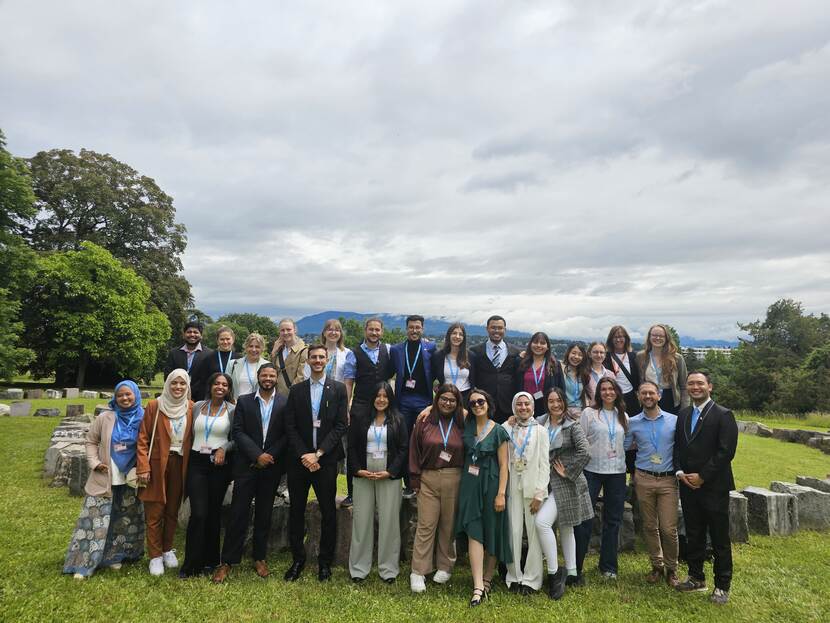
The International Federation of Medical Students’ Associations (IFMSA) is an international network of medical students active in over 130 countries. Worldwide, it has 1.5 million members, with a thousand of them belonging to the Dutch branch: IFMSA-NL. To prepare future health professionals for a future with international health challenges, the Youth Delegate Programme was established seven years ago. It is a collaboration between IFMSA-NL, the Ministry of Health, Welfare and Sport (VWS), and the Ministry of Foreign Affairs (BZ).
The YDP focuses on increasing future healthcare professionals' knowledge of health policy and involving young people in health policy. Sie Meng Lee states, "During my medical studies, I noticed that there was relatively little focus on public health and the role of health policy. However, policy agreements and themes such as international healthcare significantly shape the future for doctors, nurses, and other healthcare professionals. Consider the spread of tropical diseases or increasing droughts due to climate change. We will be the ones who need to treat the victims of these consequences, so we must also be involved in discussions on how our healthcare systems can be prepared for these challenges."
Make Your Voice Heard
Each year, the YDP selects a student as the Youth Delegate to the World Health Assembly (WHA). Lee explains, "After an open application process, a student is chosen to be the Dutch Youth Delegate for a year. In this role, they can attend the World Health Assembly to represent the voice of young people. The student can make a statement during the plenary session, based on several pre-determined priorities important to future healthcare professionals. This year, we are focusing on climate and health, and mental health. Through the Youth Delegate, we aim to stimulate intergenerational dialogue."
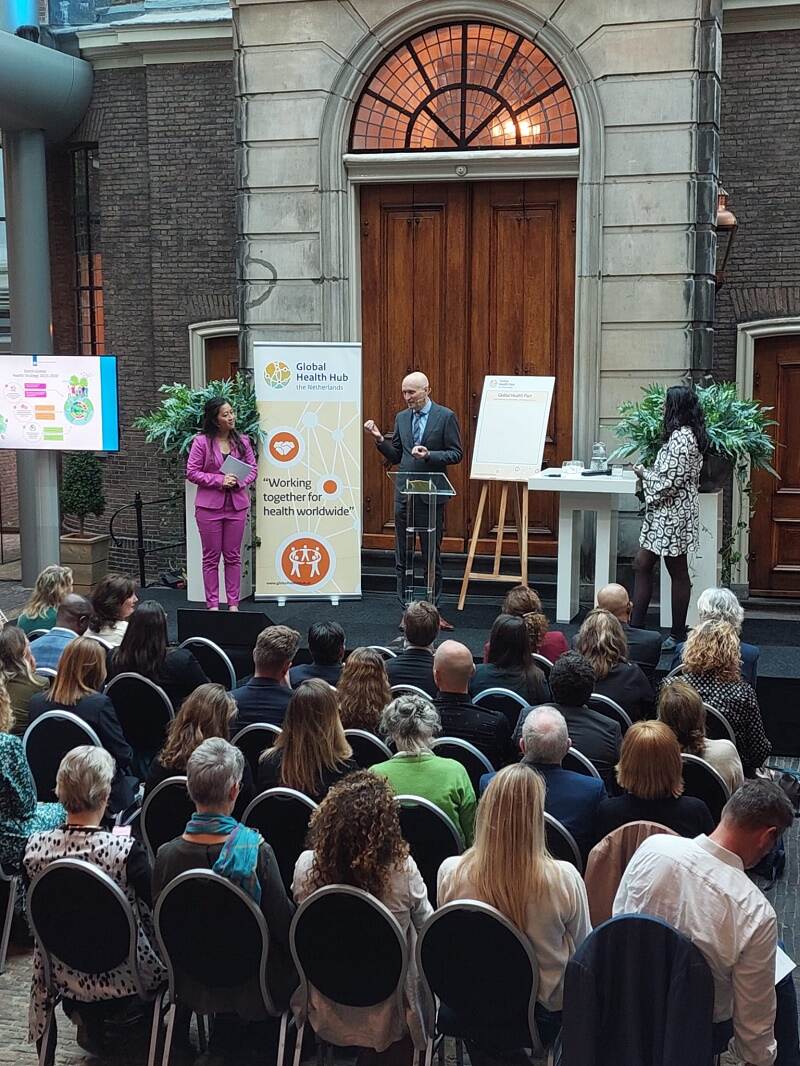
Climate and health is a widely supported topic, especially among young people, Lee explains. "The younger generation is very aware of the impact of climate change on our future. Young people are taking to the streets and speaking out, as seen with school strikes for climate, but they also lead many local initiatives to raise awareness about climate change. The second theme—mental health—is also very relevant. During COVID-19, it became clear how significant the impact was on young people's experiences. The mental consequences of the pandemic are still being felt, and waiting lists for mental health services are extremely long. Young people often face high pressure and uncertainties about the future. We emphasise the importance of mental health in policy discussions and strive for better support and preventive measures within healthcare. We want to bring more attention to this issue."
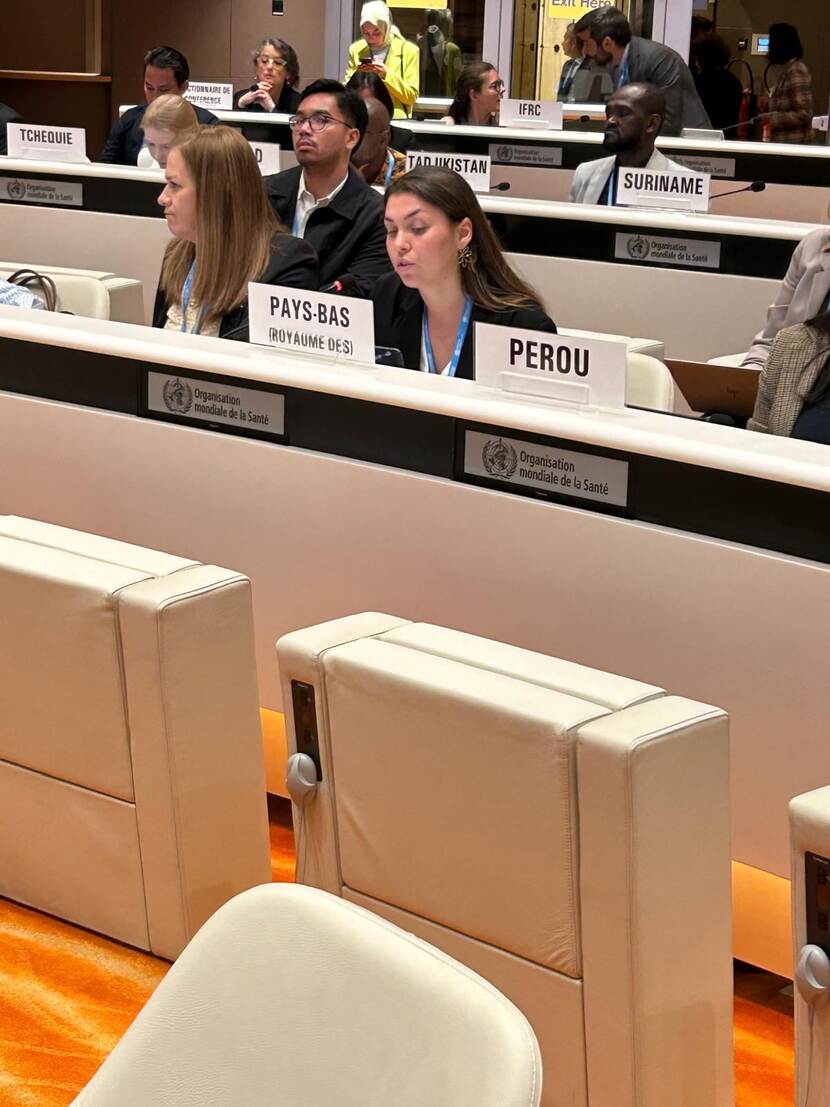
Global Health Hub
The Global Health Hub, as a network of partners working on global health, naturally shares much in common with the international student organisation. Therefore, IFMSA-NL serves as a full partner of the Hub. Lee states, "From the beginning, we have been genuinely involved and included in decision-making processes. We feel taken seriously as a partner. Moreover, we are co-leaders of CoP3. Our advantage? We bring a form of fresh optimism. As we are not yet bound by fixed protocols and rules, we can approach things differently, with a mindset of ‘Let's just do it.’”
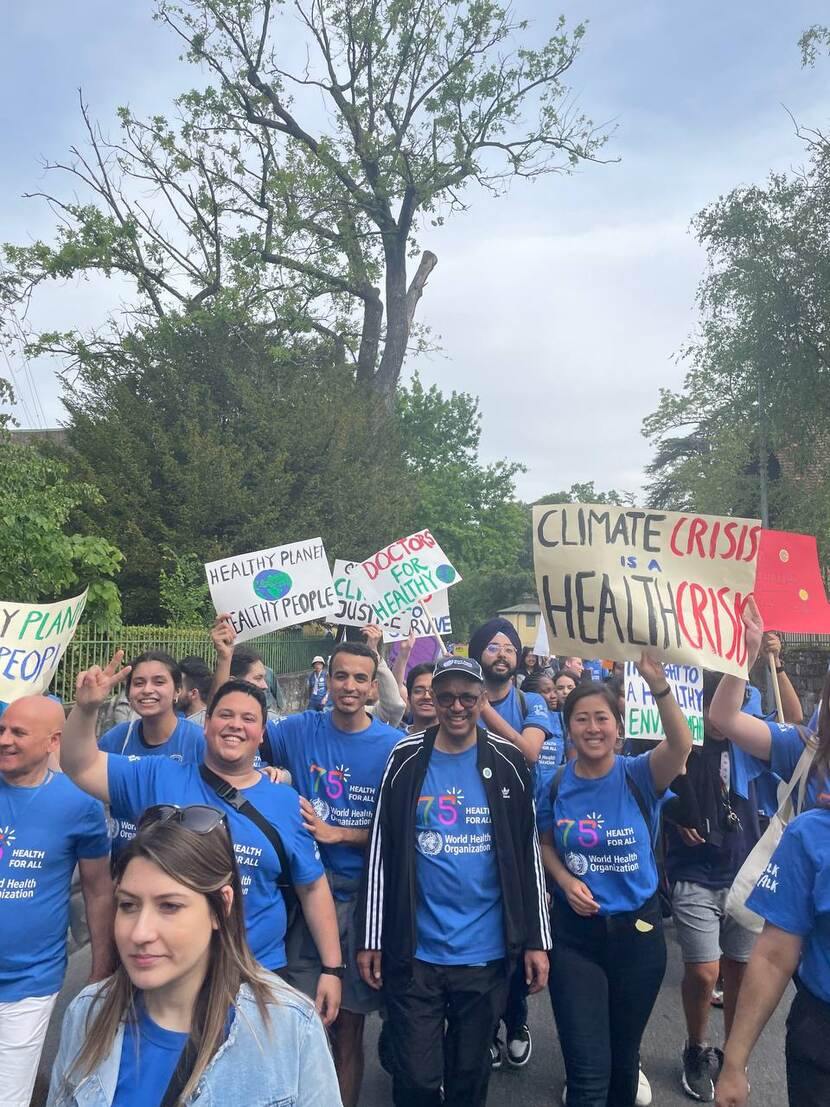
Just Do It
Lee continues, "There are always barriers to youth involvement. Always. Add to that the fact that at the Hub, we deal with complex international treaties, numerous parties, cultures, and legal systems, where we do not always have as much knowledge as the more experienced partners in the Hub. But we all face climate change and its impact on healthcare. Through the Hub, we can connect with partner organisations abroad. Together, we can share our expertise and gather experiences. I think we can learn a lot from our partners abroad. In some areas, other countries are simply further ahead. The Dutch healthcare system uses a lot of energy and resources. So, we need to look closely at issues such as: how can we use less energy and plastic? How do we sustainably separate our waste in hospitals? But if you don't have reliable electricity connections, as in some rural areas in Africa, that's less relevant. However, they can teach us a lot about the consequences of prolonged droughts on healthcare. We are also increasingly facing these issues. How do we provide our patients with sufficient drinking water in such cases? The Hub facilitates the exchange of this kind of knowledge and experience.”
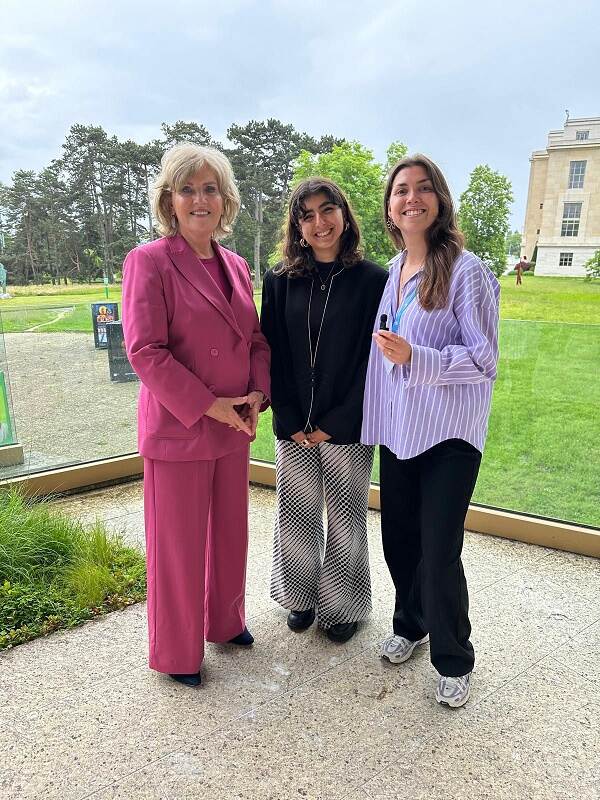
New Programmes
The GHH and YDP are still developing, but the enthusiasm and willpower are there. The coming years will be crucial to see how these initiatives evolve further. Lee notes, "A concrete example of young people who no longer want to wait is our advocacy group Act4Health, which focuses on raising awareness of planetary health in society and the healthcare sector itself. For instance, they are already contributing to initiatives to incorporate planetary health into the medical curriculum at five of the eight medical universities in the Netherlands. Additionally, we organise annual masterclasses on Global Health and diplomacy. Naturally, we continuously collaborate with the Hub and its partners. This way, we tangibly contribute to global health together.”
Background Information
The International Federation of Medical Students’ Associations – the Netherlands (IFMSA-NL) brings together medical students and future health professionals for global health initiatives. Their mission is to unite medically oriented students for global health and provide them with the values, knowledge, and skills needed to contribute to the health sector and society, both now and in the future.